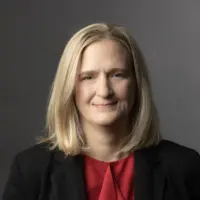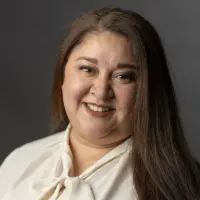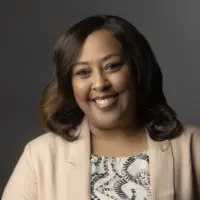About Victor Community Support Services – Mental Health
Victor Community Support Services–Mental Health, in San Bernardino, California, is a comprehensive mental and behavioral health care facility for youth and adults. They offer specialized services for children, adolescents, seniors, families, pregnant and postpartum women, parents and caregivers of minor children, and persons with co-occurring addiction and mental illness. Their services include school and community-based care, crisis intervention, and inpatient, outpatient, and aftercare programming.
Their inpatient programs allow clients to focus on their recovery in a highly structured and supportive environment. All clients (inpatient and outpatient) receive medical and mental health assessments, drug and alcohol screenings, personalized care planning, and comprehensive case management. Clients also engage in intensive CBT-based individual, group, and family counseling and recovery-focused, age-specific life skills training addressing topics such as coping, self-care, wellness, emotional regulation, and relapse prevention.
Their outpatient and aftercare services ensure a complete continuum of care aligned with clients’ evolving needs. In addition to continuing counseling and recovery education, clients may receive step-down support, 12 step program facilitation, academic and vocational training, employment and housing assistance, and referrals for medical, mental health, and social service programs.
Victor Community Support Services is accredited by COA and CCCMHA and accepts financing and self-pay. Financial aid is available.
Facility Overview
Latest Reviews
Rehab Score
Location
Other Forms of Payment
Financial aid can take many forms. Centers may have grants or scholarships available to clients who meet eligibility requirements. Programs that receive SAMHSA grants may have financial aid available for those who need treatment as well. Grants and scholarships can help you pai for treatment without having to repay.
Addiction Treatments
Levels of Care
Outpatient Programs (OP) are for those seeking mental rehab or drug rehab, but who also stay at home every night. The main difference between outpatient treatment (OP) and intensive outpatient treatment (IOP) lies in the amount of hours the patient spends at the facility. Most of the time an outpatient program is designed for someone who has completed an inpatient stay and is looking to continue their growth in recovery. Outpatient is not meant to be the starting point, it is commonly referred to as aftercare.
Treatments
Mental health rehabs focus on helping individuals recover from mental illnesses like bipolar disorder, clinical depression, anxiety disorders, schizophrenia, and more. Mental health professionals at these facilities are trained to understand and treat mental health issues, both in individual and group settings.
Programs
Adult rehab programs include therapies tailored to each client's specific needs, goals, and recovery progress. They are tailored to the specific challenges adult clients may face, including family and work pressures and commitments. From inpatient and residential treatment to various levels of outpatient services, there are many options available. Some facilities also help adults work through co-occurring conditions, like anxiety, that can accompany addiction.
Young adulthood can be an exciting, yet difficult, time of transition. Individuals in their late teens to mid-20s face unique stressors related to school, jobs, families, and social circles, which can lead to a rise in substance use. Rehab centers with dedicated young adult programs will include activities and amenities that cater to this age group, with an emphasis on specialized counseling, peer socialization, and ongoing aftercare.
Clinical Services
Cognitive Behavioral Therapy (CBT) is a therapy modality that focuses on the relationship between one's thoughts, feelings, and behaviors. It is used to establish and allow for healthy responses to thoughts and feelings (instead of unhealthy responses, like using drugs or alcohol). CBT has been proven effective for recovering addicts of all kinds, and is used to strengthen a patient's own self-awareness and ability to self-regulate. CBT allows individuals to monitor their own emotional state, become more adept at communicating with others, and manage stress without needing to engage in substance abuse.
Whether a marriage or other committed relationship, an intimate partnership is one of the most important aspects of a person's life. Drug and alcohol addiction affects both members of a couple in deep and meaningful ways, as does rehab and recovery. Couples therapy and other couples-focused treatment programs are significant parts of exploring triggers of addiction, as well as learning how to build healthy patterns to support ongoing sobriety.
Experiential therapy is a form of therapy in which clients are encouraged to surface and work through subconscious issues by engaging in real-time experiences. Experiential therapy departs from traditional talk therapy by involving the body, and having clients engage in activities, movements, and physical and emotional expression. This can involve role-play or using props (which can include other people). Experiential therapy can help people process trauma, memories, and emotion quickly, deeply, and in a lasting fashion, leading to substantial and impactful healing.
Research clearly demonstrates that recovery is far more successful and sustainable when loved ones like family members participate in rehab and substance abuse treatment. Genetic factors may be at play when it comes to drug and alcohol addiction, as well as mental health issues. Family dynamics often play a critical role in addiction triggers, and if properly educated, family members can be a strong source of support when it comes to rehabilitation.
Group therapy is any therapeutic work that happens in a group (not one-on-one). There are a number of different group therapy modalities, including support groups, experiential therapy, psycho-education, and more. Group therapy involves treatment as well as processing interaction between group members.
In individual therapy, a patient meets one-on-one with a trained psychologist or counselor. Therapy is a pivotal part of effective substance abuse treatment, as it often covers root causes of addiction, including challenges faced by the patient in their social, family, and work/school life.
Staff

Simona Cataldo
Chief Executive Officer

Manuel Luna
Chief Operating Officer

Edward Hackett
Chief Financial Officer

Mindy Lanum
Chief Administrative Officer

Lorena Jauregui
Director of Human Resources

Sharmelle Parker
Vice President of Innovation
Contact Information
1053 North D street
San Bernardino, CA 92410
